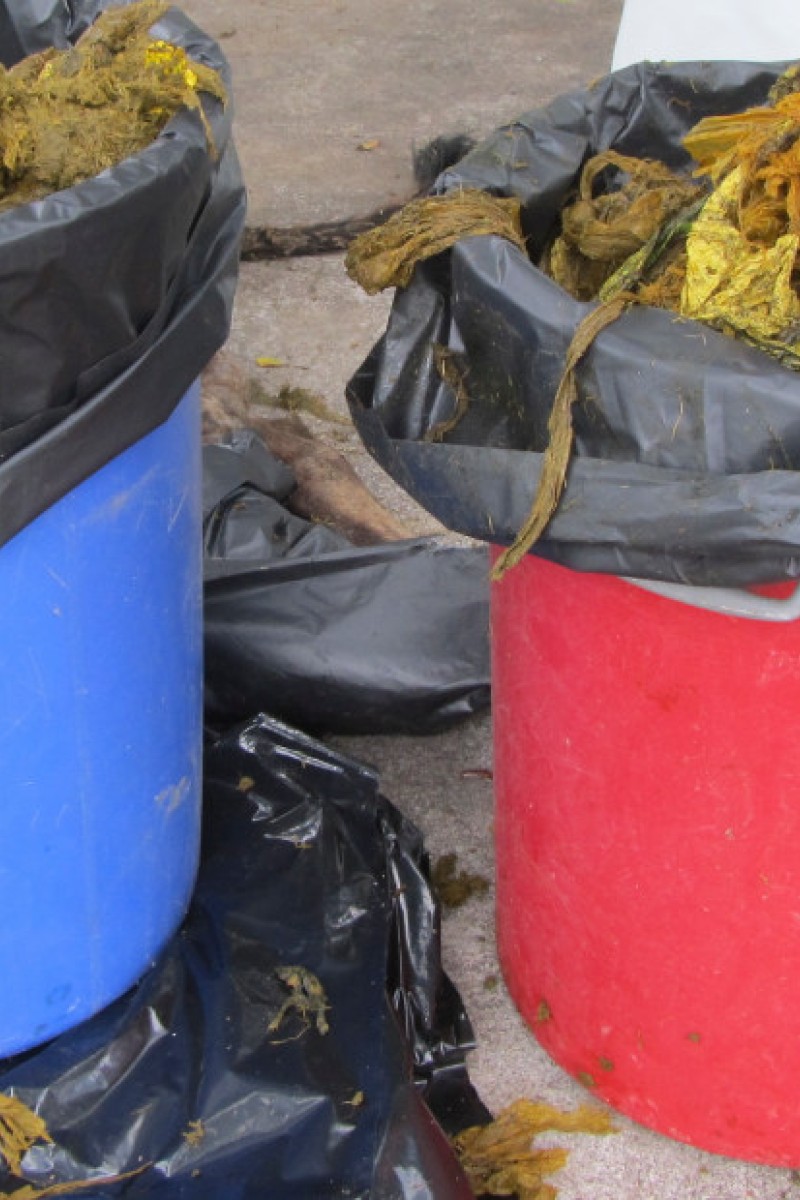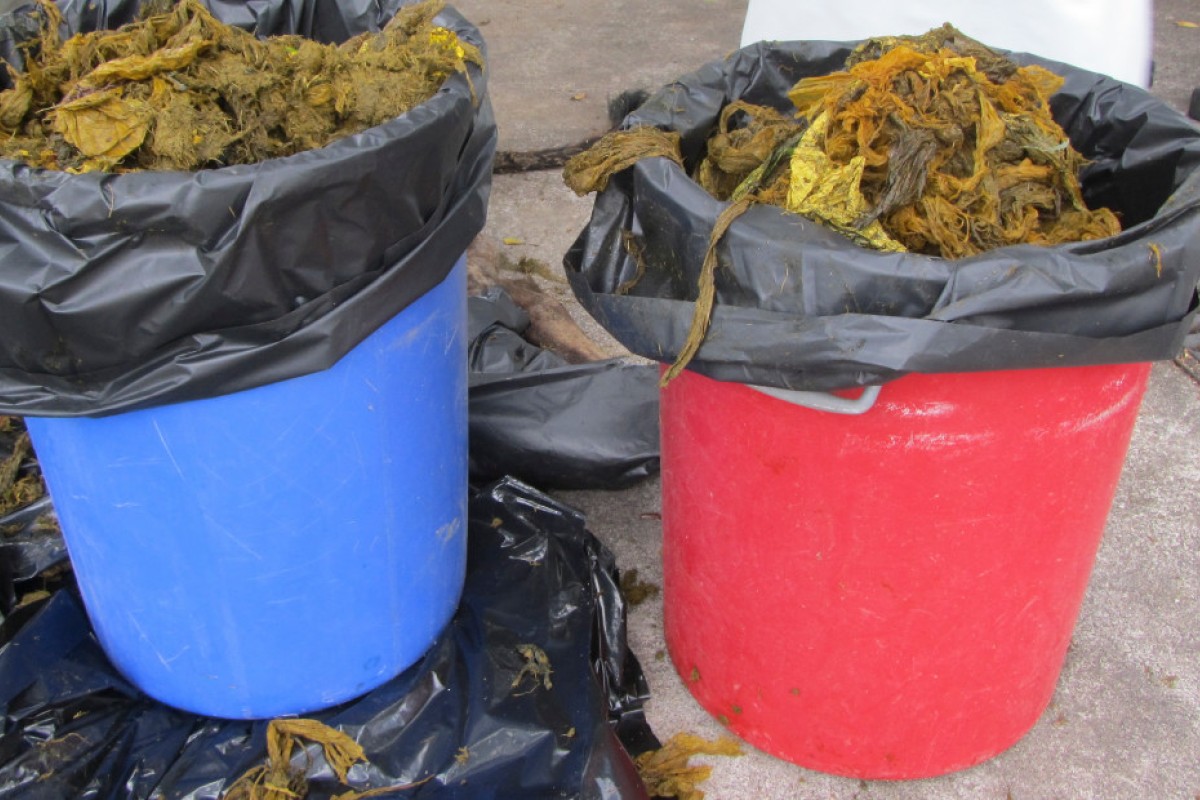
Liberal Studies: HK needs to cut down on single-use plastics [February 20, 2019]
 The Agriculture, Fisheries and Conservation Department said Billy’s stomach had been blocked with enough plastic bags to fill two rubbish bins.
The Agriculture, Fisheries and Conservation Department said Billy’s stomach had been blocked with enough plastic bags to fill two rubbish bins.Issue 3
Greenpeace’s Chan said it was important to curb the use of single-use plastics at the source. “For visitors who are going to beaches or the countryside, planning ahead and bringing reusable cutlery and boxes can already help,” she said. She also encouraged restaurants and kiosks at beaches to take the lead in handing out less throwaway plastic.
Since July last year, the government has run a “Plastic- Free Beach, Tableware First” campaign, with at least 47 kiosks and restaurants operating at the city’s public beaches pledging to avoid distributing plastic straws and disposable plastic tableware. Plastic debris accounts for between 60 and 80 per cent of marine litter found along shorelines, according to a survey of 34 coastal sites by WWF-Hong Kong in 2015 and 2016.
About 154 tonnes of disposable plastic tableware went into the city’s overflowing landfills in 2016. Plastic, in general, accounts for roughly a fifth of the city’s daily municipal waste generation. The AFCD said it had implemented a number of measures to reduce the chances of cattle getting close to humans and rummaging through rubbish.
One of the schemes include stationing staff members around southern Lantau to herd cattle away from “black spots” where they were known to approach visitors. The department said feeding the cattle may lead to the animals developing the habit of obtaining food from humans, instead of finding their own. In a Facebook post by AFCD, the staff asked the public to help spread the “Do not feed the cows” message, and use fewer plastic bags.
Question prompts:
- List three ways, other than those given in the article, in which people can be persuaded to stop feeding animals.
- Should the number of rubbish bins in the city be reduced so that the public will be forced to use reusable bags? Why or why not?
Edited by M.J. Premaratne
Read Issue 2 here
Read Context here
